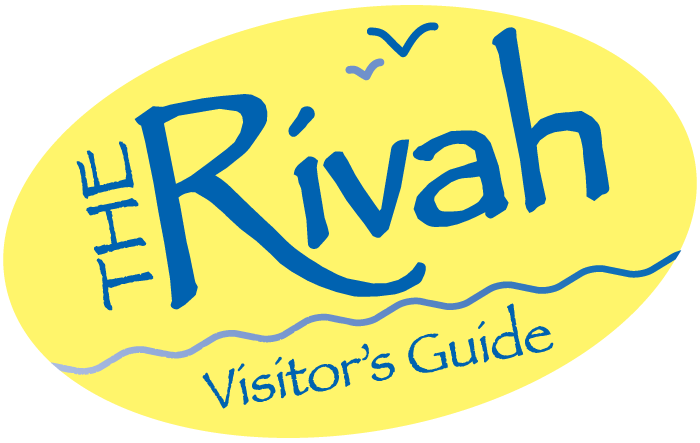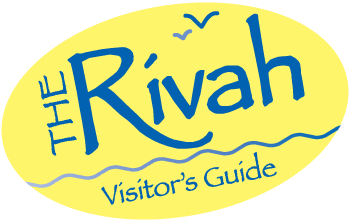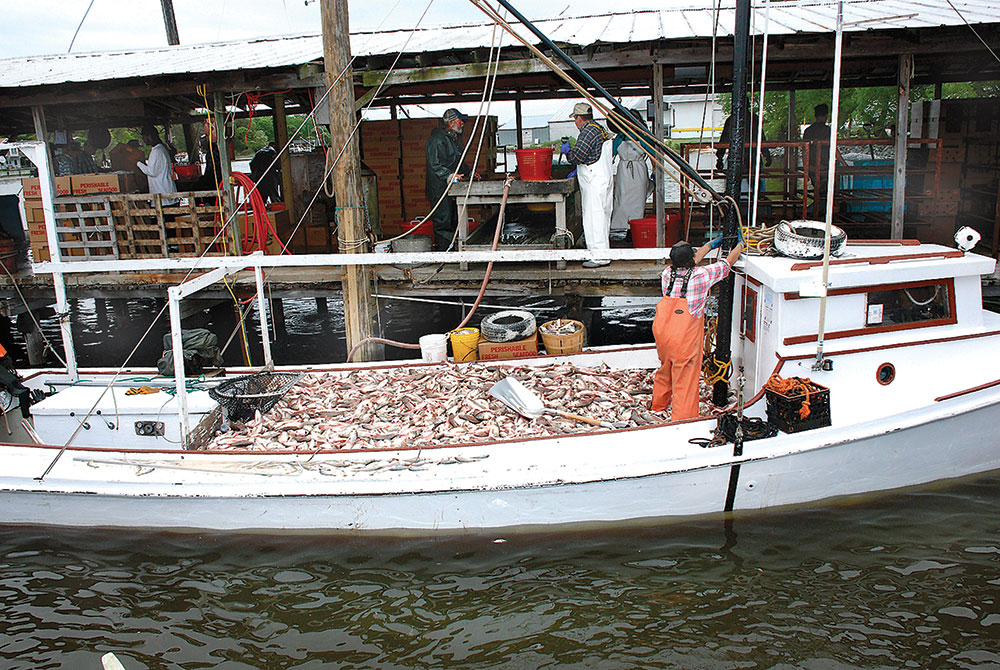
by Larry Chowning –
When you go to Guinea Neck expect to see white rubber boots, to be called “Darlin’ ” by man or lady and to dodge fiddler crabs that are scrambling about the marshy roads. There is, however, a lot more to Guinea.
Guinea Neck is a peninsula tucked somewhere between the southwest branch of the Severn River, Mobjack Bay and Sarah Creek on the York River. The boundaries are such that it depends on who you talk to as to exactly where Guinea starts and stops.
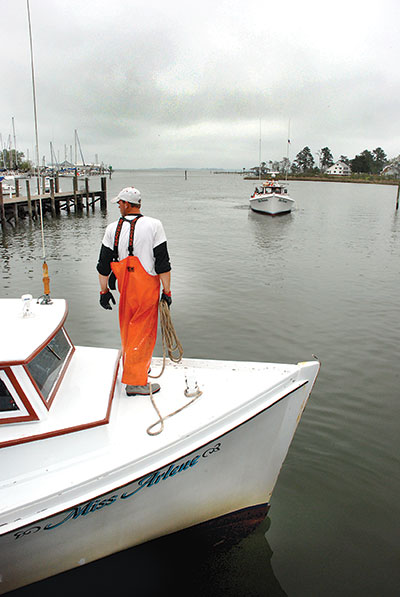
Even as urban sprawl and housing developments creep further and further into the heart of Guinea, the side roads still lead to the water and fish and crab houses and the reason that Guinea is so special.
Jenkins Neck, Maryus, Perrin, Achilles, Bena, Big Island, Kings Landing and Severn are all names of communities and locations associated with the marshy peninsula in Gloucester County.
Legend has it that Hessian mercenary soldiers occupied the area of Guinea in 1781, after Cornwallis’ defeat.
Some retreated and found safe haven in the low marshlands around Guinea Neck. They too probably saw more of a future in this newly created America than back home in Germany.
The name Guinea supposedly came from the one guinea the English were paying the Hessians a day to fight against the Continentals. A guinea was a gold coin issued by the British from 1663 to 1813 that equated to 21 shillings.
It is a historical fact that Cornwallis sent British troops in October 1781 to occupy Gloucester County. Some of those troops were sent to secure lower Gloucester in an effort to protect his army at the mouth of the York River. Perhaps some were Hessians or perhaps not — but it makes a great story.
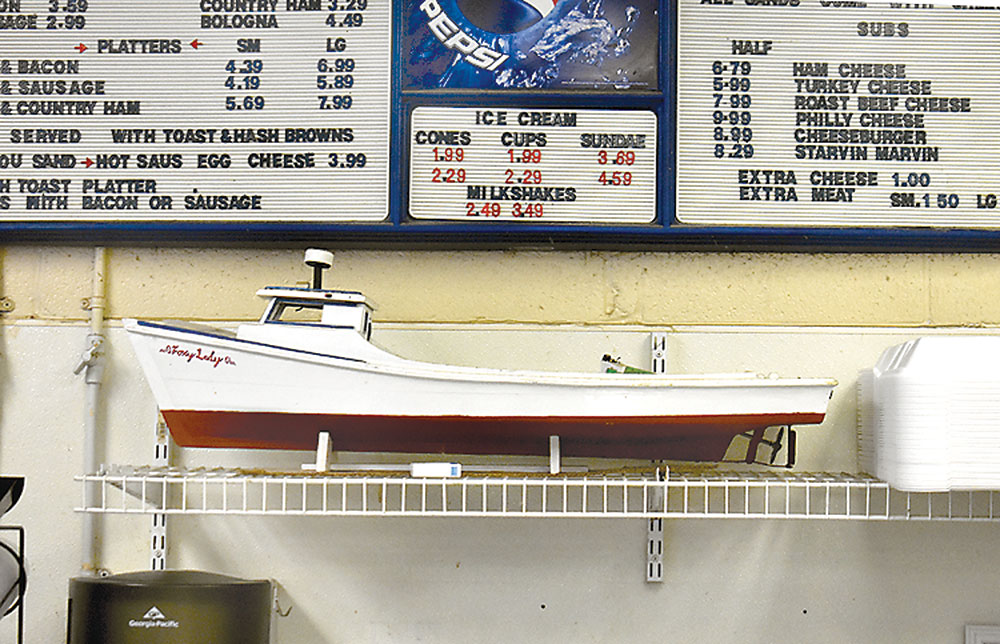
Lou Setterholm Sammons — A Waterman’s Daughter
Mary Louise Setterholm Sammons is known by everyone in Guinea as Lou. She manages Achilles Market, a community hub where watermen and their families come regularly to socialize and eat Lou’s homestyle cooking. Lou grew up a waterman’s daughter.
“The best thing about Guinea is that those of us who grew up here and whose families have been here for generations consider each other family,” she said. Lou was born and raised in Guinea. Her father Fred Setterholm was a noted patent tong clam fisherman.
When she was tall enough to reach the washboards of her father’s clam boat she worked alongside him.
“I will tell you about Guinea and the ways of watermen,” she said. “When my father was 36 years old, he had a massive heart attack and could not work. When he was in the hospital, the clammers from Middlesex, Mathews and Gloucester counties took a share of their earnings at the end of the workweek from each boat and gave it to my mother so she could pay our bills.”
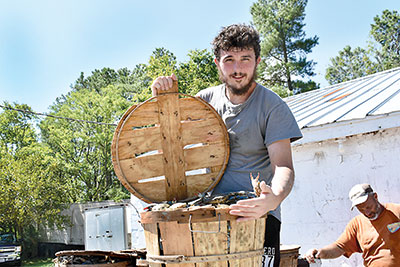
She continued, “That’s the way watermen and people here are in Guinea,” she said. “We are close knit. When (Hurricane) Isabel came through and I, along with others, lost just about everything we had. Everyone came out to help their neighbors. Even those who had been fighting with one another for years put it all aside.”
Lou believes the heart and soul of Guinea is tied to the ways of the water and Guinea’s watermen’s heritage. She is in charge of the “Wonders of the Water” portion of the annual Guinea Jubilee that will be presented this month on Sept. 23 and 24. Through the “Wonders of the Water” she educates children of the ways of Guinea.
“We show them how to tread clams (with their feet),” said Lou. “We teach them the different parts of a crab pot and we let them throw a crab pot over and pull it up. You would be surprised how many children have never thrown a crab pot overboard.”
Surrounded with all the modern elements of a convenience store at Achilles Market, there is a framed collage of old photos hanging on the wall of past Guinea watermen. Lou has labeled the collage “White Boots” denoting the everyday footwear of watermen and a second section entitled “We lived in Guinea!”
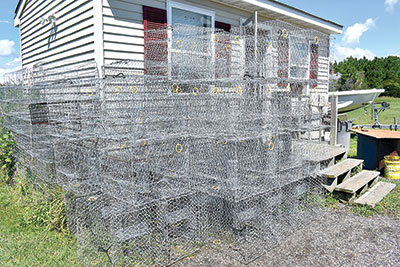
There are old photos of men pulling pound nets, a man dumping a tub full of oysters, a man and a boy going out in a skiff to catch a mess of fish, a diamond V-stern patent tong clam boat under way, and other images of Guinea’s rich water heritage.
There are also closeup faces of past watermen with one of a smiling face of the late Captain Henion Brown of Bena. Captain Henion is a recognizable face to many as he was a popular spokesperson for Guinea’s way of life when he was nearing 100 years old. His display and talks on mending seine nets and working pound nets were a popular part of the Rappahannock Community College’s (RCC) annual Folklife Festival that was conducted at RCC’s Glenns Campus in the 1970s and 1980s.
A model of the deadrise workboat “Foxy Lady” is on display underneath the store’s main menu as a reminder that you are eating in Guinea — my what a tasty menu. The menu at Achilles Market reminds one of those “specials of the day” when “Mom and Pop” eateries were in fashion everywhere. The specials for this week were Monday, reuben; Tuesday, buffalo bites; “Humpday,” clam strip boat; Thursday, turkey with bacon sandwich; and Friday, what else would it be in Guinea, but a crab cake.
When asked what was so special to her about Guinea, Lou said she understands people’s notion that Guinea has historically been considered a rough watermen’s neighborhood “and it has been from time to time,” she said. “But most of the time, we are about caring and helping each other. It is a happy, special place!”
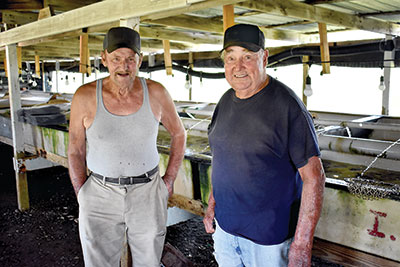
Steve & Raymond “Kennyman” Kellum — Watermen
“We learned about working the water from our father, Capt. Bud (Kellum),” said Steve Kellum, who at 77 still fishes the spring peeler crab run on Mobjack Bay, sheds and markets soft-shell crabs at his home in Maryus, makes crab and peeler pots, hangs gillnets and works stake gillnets on the York River during the striped bass season.
Raymond, 83, whose nickname is Kennyman, works for a local funeral home but worked the water most of his life. When they were young men, the brothers hand tonged together for oysters out of Urbanna Creek, and moored their boat at F.L. Hall Texaco fuel dock and sold oysters to Beryl R. Newman at his seafood dock on the creek in an area that is today the Urbanna Town Marina.
“We have worked in just about every fishery,” said Steve inside his crab house next to his home at Maryus.
“Yeah, I started out working for $12 a week culling crabs for Elmer Green and I thought I was making good money,” said Kennyman. “Our father, Captain Bud, worked in the pound net fishery and we worked with him too.”
“Mine is not quite that bad,” said Steve. “When I first went to work on the water I worked for Thomas Green culling oysters on the York River when I was 12 years old for $5 a day.”
“I love Guinea with a passion,” said Steve. “When my wife and I first married she wanted to move, but it grew on her.”
“Yeah it did,” said Kennyman. “Now, she would not leave here for the world. It is our home but it has a way of becoming a good home for those who move here too.”
“We have a way of talking in our own way here in Guinea,” said Steve. “If we like you, whether a man or woman, we call you Darlin’. At Fox Hill (near Hampton) watermen called everyone Mate and Mathews County watermen call everyone Bo. It is our way of letting you know we think you are alright.”
“We have our own way of saying and doing things in Guinea,” said Steve. “We have a reputation of being rough, but there is a lot of good in Guinea. When I was growing up, it did not matter if you were Black or white or who you were, if you came to my mother’s door at mealtime she would say, ‘Come on in Darlin’ and sit down and eat with us.’ ”
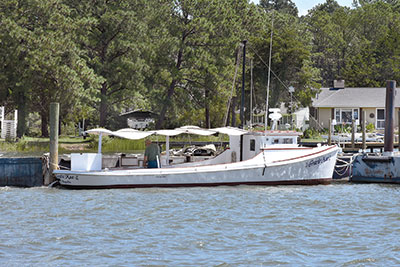
There are also different names in the region for boats. In Guinea, a pound net skiff is called a skiff, but Bull Islanders, an island is considered by some to be part of Guinea, called it a tow bat and Mathews county watermen call it a bateau. Also in Guinea, watermen call a pound net a “ware,” which is slang for weir another name for a fish net.
Kennyman and Steve are longtime members of First Morning Star Baptist Church on Guinea Road and along with three other family members Cookie, Beulah and Dorothy Kellum, they make up the Kellum Family Singers. “We grew up in the church,” said Steve.
“We sing all the time and I think living in Guinea inspires us.”
About halfway through the interview cars start pulling up at Steve’s shedding house. A tall Black man with a COVID-19 mask came to purchase peelers to go bottom fishing. “I buy all my peelers right here because he (Steve) gives me fat, meaty crabs,” he said.
A young waterman drove up in a pickup truck and came in with a partial basket full of peeler crabs (a peeler is a crab in one of the three stages of molting before it sheds its hard exoskeleton and becomes a soft-shell) that he had just caught to sell to Steve. “I only fish for peelers in the spring runs,” said Steve. “The rest of the year I buy the crabs from the boys working crab pots and shed them here at home.”
While all this was going on, Kennyman dipped some peeler crabs out of the float and placed them in a plastic bag. “I’ll see you boys later,” he said. “I’m going down to the creek and catch me some puppy drum for supper.”
When they all left, Steve and I talked some. He introduced me to his cat Bobo, who he had fished out of a crab pot in his backyard. “I found her as a kitten in one of my crab pots so I took her back across the road to her mother,” said Steve. “Next day she was back. I took her back and the next day she was back again. I told her three strikes and you are in and she has been here ever since.”
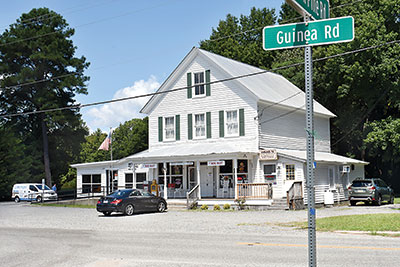
“I love that cat,” he said. “A while back Bobo didn’t come home for awhile. I later found her tangled in a new gill net my wife and I had strung. She was nearly starved to death. I took my knife and cut that new net up as fast as I could to get her out. All I cared about was saving Bobo.”
He continued, “Guinea is no different from anywhere else in that there are some good and bad people but the thing about Guinea is that I think it is more about good, caring people than the other,” he said.
The interview ended with a rhetorical question: Guinea has been good to you hasn’t it?
Steve replied, “Darlin’! It has been the best!”
Later, driving around Guinea dodging fiddler crabs and rising tide along the road, I thought, well, I guess I passed the test. He called me, “Darlin’,” a sign of acceptance in Guinea Neck!
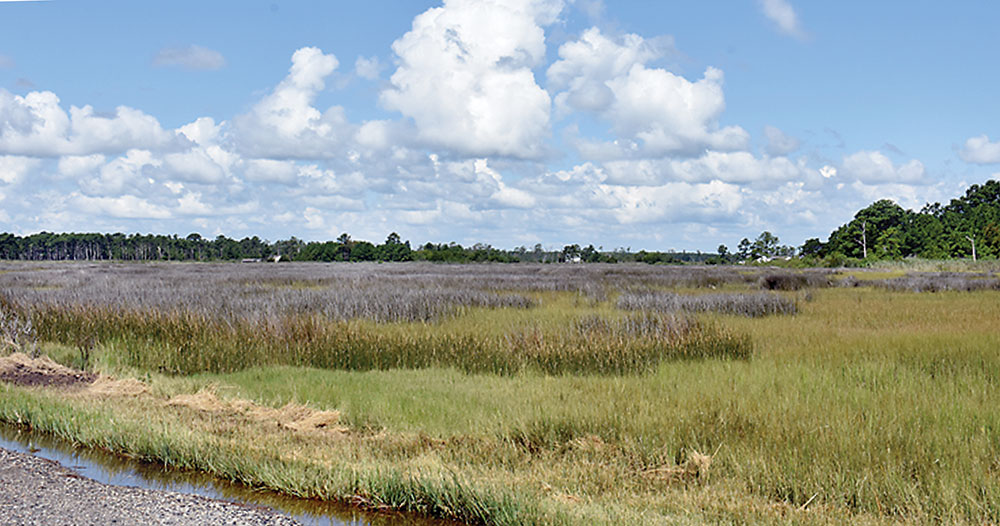
Burning marsh grass, pulling pranks, all part of Guinea experience
When Lou Setterholm Sammons of Achilles Market mentioned I had interviewed her late father Fred Setterholm, I reached into the archives and found this portion of the 2006 interview I had with Fred down on the dock at Holiday Marina in Guinea.
One Guinea tradition every spring is the burning off of marsh grass. It keeps the Gloucester County Fire Department hopping and on occasion makes Norfolk and Richmond television news.
“They burn the marshes to keep the ticks and fleas down,” said Fred Setterholm, a Guinea native. “You hear people say we burn the marshes because it makes the sparrowgrass (wild asparagus) and blackberries grow better, but that’s just talk.
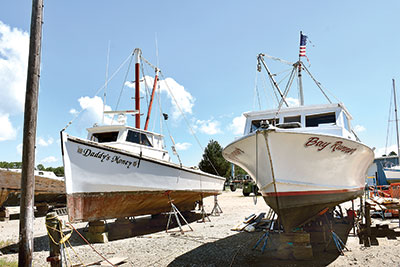
“Sparrowgrass grows along ditches, not in the marshes. You come every year and dig and clean your ditches and flip the dirt to keep your flood-wall strong. The dirt along ditches covers the sparrowgrass seedlings and it comes back each year along the ditches.
“Burning marshes has been going on forever and it does keep the ticks and insects down,” he said. “The old people had ways of doing things. They’d come along and take fuel oil and paint it on their old copper screens on their porches to keep insects away. You do that today, they would think you were crazy and the smell would run you out.”
Setterholm worked the water until a few years ago when he suffered heart problems and went through two open-heart surgeries. Nowadays, he hangs out around Holiday Marina and talks to the younger watermen as they work on their boats.
Storytelling is as much a part of Guinea culture as rigging crab pots and mending seine.
Over the years, of interviewing watermen throughout the Chesapeake Bay region I have discovered that certain people and their boats have legendary status among watermen.
When their names are mentioned there is usually an answer such as “Who don’t know him?” And a story to go along.
The late Dink Miller of Hartfield and his boat Mary Joan was such a legend in the patent tong clam fishery. So when Setterholm said he made his living as a clammer I asked him if he knew Dink — knowing full well he would and just maybe a story and some of that Guinea heritage might surface.
“If you clam the bay you know Dink,” he said. “You know Dink won the Mary Joan (his boat) in a poker game,” said Setterholm. “He was drudging oysters up the York River and boys got into a game one cold winter night and Dink came away with the boat.
“I’ve known Dink since I was a little boy,” he said. “He still goes out there working. He must be near 90 years old. Now this is the truth, one day my daddy and my brother were clamming up the James River. Dink came up in his boat and started circling daddy. He was just messing around. If we like you, we play jokes on you. Daddy knew Dink was fooling around so he told my brother, ‘Don’t look at him no matter what he does.’
“Dink kept doing it and kept doing it and finally he got so mad at daddy because he wouldn’t look at him that he pulled out his pistol and shot right through the mast on my daddy’s boat.
Daddy told my brother again, ‘Don’t look at him!’ ”
“That night when they got to the dock to sell their clams, daddy came up to Dink put his arm around him and said, ‘Dink Miller where in the world did you come from? We haven’t seen you all day.’”
(Wilbur Denvy “Dink” Miller died in April 2008 and Fred Setterholm died in May 2016.)
